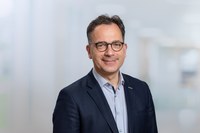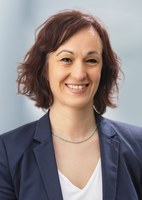“We would like to add a chapter to the textbook on immunity”
Upon the occasion of Robert Koch’s 180th birthday, Marco Prinz, Susana Minguet and Robert Thimme discuss the potential of structural immunity for understanding the immune system and new therapeutic options.
10 December 2023 marks the 180th anniversary of Robert Koch's birth. According to neuropathologist Prof. Dr Marco Prinz, Koch, who was awarded the Nobel Prize for Medicine, “laid the foundation for the knowledge we have today about th
e immune system. He discovered two key things: that certain pathogens play a role in organ diseases and that these also trigger an immune response.” 150 years after the "pioneers of immunology", as molecular immunologist Prof. Dr Susana Minguet calls Koch and his contemporaries, an interdisciplinary team led by Prinz, Minguet and hepatologist Prof. Dr Robert Thimme is working towards new concepts that could fundamentally change our understanding of the immune system. At the centre of this is the idea of structural immunity.
Diverse preliminary work: immunotherapy for cancer, T-cells and Alzheimer’s research
Coming from different disciplinary backgrounds, Minguet, Prinz and Thimme have come to the same realisation: there must be other cells in addition to the immune cells that contribute to the immune response, even though they are not immune cells themselves.
A particularly good example, says Minguet, are babies born without a thymus or with a defect of the structural cells in this organ. The children cannot produce any T-cells, which are an important part of the adaptive immune system. "Right now, we cannot treat those children", says Minguet. "Bone marrow transplants don’t work. Despite the transplant, the children are still sick because the structural cells of the thymus are required for the development of T-cells.”
Video interview with Susana Minguet
Elsewhere, new therapies related to structural immunity have already been developed. “Immunotherapy is an absolute breakthrough in the treatment of cancer,” says Thimme. When the T-cells that fight a tumour are exhausted, they can be restimulated by immunotherapy. “However, we don’t yet fully understand why the T-cells stop fighting the tumour in the first place, and the role of structural cells in that.”
Video interview with Robert Thimme
Similar phenomena can be observed in the brain. “Localised macrophages play an important role in the fight against Alzheimer’s,” says Prinz. “We are currently seeing that these cells are exhausted at some point. We want to find out how neighbouring structural cells can support macrophages to cope with long-term diseases such as Alzheimer’s.”
Video interview with Marco Prinz
Whether for cancer or Alzheimer’s therapy, the clinical need is huge, says Thimme. “It’s high time we asked ourselves: Why is the immune cell the way it is? And how is it shaped by its environment?” Structural immunity plays a central role in answering all of these questions. “Regardless of whether we are talking about the brain, the liver or other organs, there are probably similar underlying mechanisms that work in every organ.”
From basic research to the clinic: challenging dogmas and developing new concepts
In order to understand not only what works, but also why, research needs to extend from the molecular end of the spectrum to the clinical part, says Minguet. She also believes that intellectual flexibility is key: "We need people with different background and experiences to challenge dogmas, be creative and develop new ideas."
Thimme hopes that this will ultimately change textbook knowledge: “Until now, the immune system has been divided very generally into innate and adaptive immunity. We would like to expand this classification to include a chapter on structural immunity.” Prinz continues by saying, “not as dry textbook knowledge, but in such a way that it finds its way to the patients so that we can say that there are new treatment options based on this chapter.” Minguet says that open communication about the entire research process is a high priority, particularly because of the impact on patients’ quality of life: “We want to create trust in future medicine among patients and in society as a whole.”
Marco Prinz, Susana Minguet and Robert Thimme are available for media interviews.
Together, they are spokespersons for the INSTRUCT Cluster of Excellence initiative. More information on INSTRUCT and the Freiburg Excellence Strategy as a whole can be found here:
https://uni-freiburg.de/university/topics-in-focus/excellence-strategy/
Contact:
University and Science Communications
University of Freiburg
Tel.: +49 761 203 4302
email: kommunikation@zv.uni-freiburg.de





